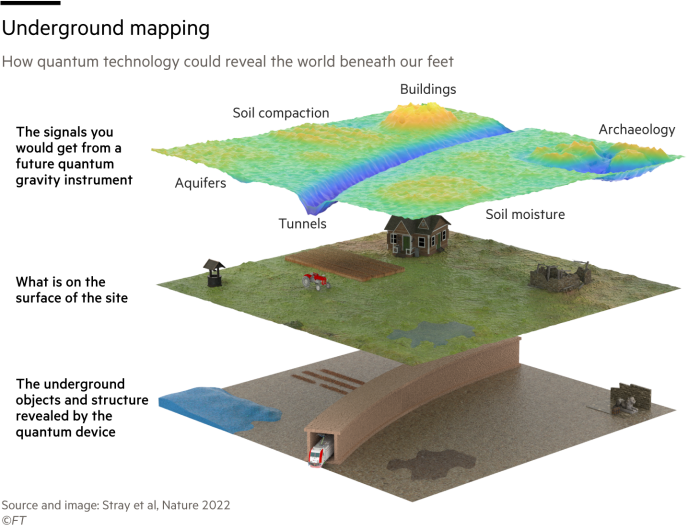EU acts on industrial data
The EU, which has put up strong defences for protecting personal data and user privacy, on Wednesday turned its attention to impersonal data with its latest legislative plans.
The European Commission put forward proposals aimed at restricting the transfer of European big data to companies based in countries including China and the US, reports our Europe Express newsletter.
The Data Act would put limits on the transfer of big data generated by smart household devices, cars or even connected irrigation systems to companies based outside the bloc. This is the kind of information that artificial intelligence systems are set to work on to spot efficiencies and build their powers.
Thierry Breton, the French internal market commissioner, wants Europe to keep control of this industrial data. As he told the FT in an interview when he first outlined the idea: “My goal is to prepare ourselves so the data will be used for Europeans, by Europeans and with our values.”
Meanwhile, the UK is leading in tackling Big Tech on the harms that can be caused by misinformation, illegal material and lax controls on protecting children from potentially harmful content. The Online Safety Bill would hold big tech firms accountable for controlling the content on their sites, writes Robert Shrimsley.
There are new criminal offences for individuals including for threatening communications and those intended to cause harm or distress. Proof-of-age requirements for some content are demanded, though the mechanics are unclear. The regulator, Ofcom, will gain powers to demand plans from the big social media and search companies for how they will tackle not only illegal material but also content that is “legal but harmful” to children or adults. This could include cyberbullying or the algorithmic promotion of false or dangerous content.
Free speech campaigners are worried and the bill’s broad sweep is a weakness. But the Online Safety bill is needed urgently and should be treated as a first salvo, argues Shrimsley, with swift amendments where the balance is wrong. Tech companies will surely understand if ministers conclude the right approach is to move fast and break things.
The Internet of (Five) Things
1. Quantum maps what lies beneath
A groundbreaking advance in quantum technology has opened a window into the world beneath our feet, reports our Science editor Clive Cookson. Researchers at Birmingham university have demonstrated what they say is the world’s first quantum gravity sensor that works reliably in the real world. Their instrument found a buried tunnel, carrying utility pipes about a metre under a road, by detecting minute variations in gravity associated with the duct.

2. Retailers rush into the metaverse
Forever 21, Nike and Chipotle are among those creating virtual world stores in a bet it will boost real-world profits. But is it a passing gimmick and just hype, or will the metaverse allow for the creation of low-overhead, high-margin ecommerce businesses that will transform global retail? Dave Lee and Hannah Murphy investigate.

3. India suffering skills shortage
India’s IT sector is grappling with a skills shortage “crisis” as companies struggle to meet surging demand and compete with well-funded tech start-ups for workers, reports Chloe Cornish from Mumbai. The shortage is challenging leading IT companies, which serve as the foundation of the country’s services industry and as back offices to the world’s biggest companies, including Citibank UK, Microsoft and AstraZeneca.
Daily newsletter

#techFT brings you news, comment and analysis on the big companies, technologies and issues shaping this fastest moving of sectors from specialists based around the world. Click here to get #techFT in your inbox.
4. The truth about Trump’s social network
Truth Social is littered with bugs and even registering an account is a challenge, says Gizmodo. The app is similar to Twitter, with users sending “truths” rather than tweets, and Twitter’s shares fell 4 per cent after its debut, points out Lex.
5. Star wars: why Nasa objects to Elon’s plans
Two weeks ago, the US space agency wrote to the Federal Communications Commission outlining concerns about SpaceX’s plans for a second generation of satellites to add to the 12,000 already licensed, writes Peggy Hollinger. These range from the substantially heightened risk of collisions, adding to an already growing cloud of space debris, to the fact that so many Starlink satellites would make it harder to detect a “potentially catastrophic” asteroid strike on earth.
Tech tools — NFT vending machine
Non-fungible tokens (NFTs) may be the hottest digital item right now, but the number of NFT users is tiny, points out Tim Bradshaw. It can be a hard concept to grasp, so NFT marketplace Neon has just made it as simple as using a vending machine, in a store it has opened in New York. Open 24 hours a day, the machine accepts US-dollar credit and debit cards and dispenses a box with a unique code inside it for the chosen NFT, which is then easily redeemable on the Neon platform. The catch to me is that you don’t know what the NFT represents — the vending machine does not tell you what you are buying, but it will be some variation on the Party Pigeons and Project Color NFTs advertised in the store.
